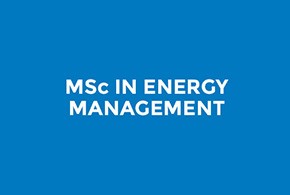| |
| |
|
Editorial
We're delighted to announce that on 3rd October, ESCP's London Campus will host its Annual Career Fair. This event brings together leading companies across various industries and over 400 high-calibre multilingual students from programmes, including the MSc in Energy Management, MSc in Digital Transformation Management and Leadership, MBA in International Management, Master in Management, and Bachelor in Management. More details are available here.
Research:
1. The working paper titled "Unplugged Potential: The Bold Promise of Repurposed EV Batteries in Shaping Our Energy Future" by Aman Kumar is available online here.
2. The working paper titled "Two Sides of the Carbon Coin: Compliance and Voluntary Carbon Markets" by Omkar Kajrolkar and Raghav Sharma is available here.
Energy Programmes at ESCP:
Admission process for the 2024 intake of our MSc in Energy Management (MEM) is open. To find out more about the specialisation, please click here.
Applications for our Executive Master in Future Energy is open for the February 2025 intake. For more information on the programme, please click here.
Finally, to keep up-to-date on all activities at the Centre, we invite you to join our LinkedIn group, Energy Management @ ESCP Business School.
|
| |
|
| |
|
Events
|

|
ESCP Business School & EMC
3rd October
|
ESCP London Campus
London Career Fair
ESCP Business School (established in 1819) is a hub for purpose-driven leaders who are ready to make an impact from day one. The ESCP London Campus plays a crucial role in bridging academia and the business world. The Careers Centre, through its industry-specific networking events, guest lectures, internship programmes, and exclusive recruitment fairs, offers a unique opportunity for partners to engage with high-calibre students and explore promising career paths.
|
|
Energy Programmes
|

London - Paris - Internship
|
|

|
|
|
|
|
Our Mission
|

|
|
The EMC Advisory Board
|

The EMC Advisory Board is comprised of top energy experts from the world's industry leaders in both the public and private sectors.
- They advise the EMC in several different areas: The curricula of the MSc in Energy Management, ensuring both programmes meet the needs of participants on academic and professional levels.
- Research that makes a significant impact on best business practices.
- Current and future activities which benefit the EMC's partners, affiliates, students and alumni.
|
|
|
Research
|
EMC Working Papers
Driving the Paris Agreement
Article 6 of the Paris Agreement includes provisions allowing countries to cooperate to achieve National Determined Contributions (NDCs), specifically through carbon pricing, to meet mitigation commitments. Carbon markets are an emerging tool that incentivises businesses to pollute less and invest in clean technologies by putting a price on carbon emissions. As this article explores further, compliance and voluntary carbon markets are poised to reshape the energy landscape and contribute to achieving the ambitious goals of the Paris Agreement.
Compliance Carbon Markets
Compliance carbon markets are a key tool in the fight against climate change, and they aim to establish a carbon price by laws or regulations which control the supply of allowances distributed by national, regional and global regimes through the following compliance mechanisms: (1) Cap and Trade: Sets a pollution limit (the cap) and lets companies buy or sell allowances to meet their obligations, creating a market for carbon credits with a price driven by supply and demand; (2) Carbon Tax: A fixed price is set per ton of carbon emitted. Companies must pay tax for their emissions, incentivising them to reduce pollution.
|
|
EMC Working Papers
Are We Creating a Compromise?
Every year in the United Kingdom and Australia, thousands of incidents involving devastating fires linked to batteries in waste management facilities or vehicles are reported. Paradoxically, these are facilities meant to contain such hazardous activities. Furthermore, headlines such as “Batteries Starting Fires at Yellowknife’s Landfill, City Says,” posted by Cabin Radio, report unreported hazardous incidents potentially linked to batteries, and are becoming more common around the globe. These reports and news are increasingly alarming because they come at the cost of life, property damage, and monetary losses, and given the fact that we heavily rely on batteries for the energy transition, they could lead to safety and environmental compromises if not treated properly.
|
|
|
| |
|



















